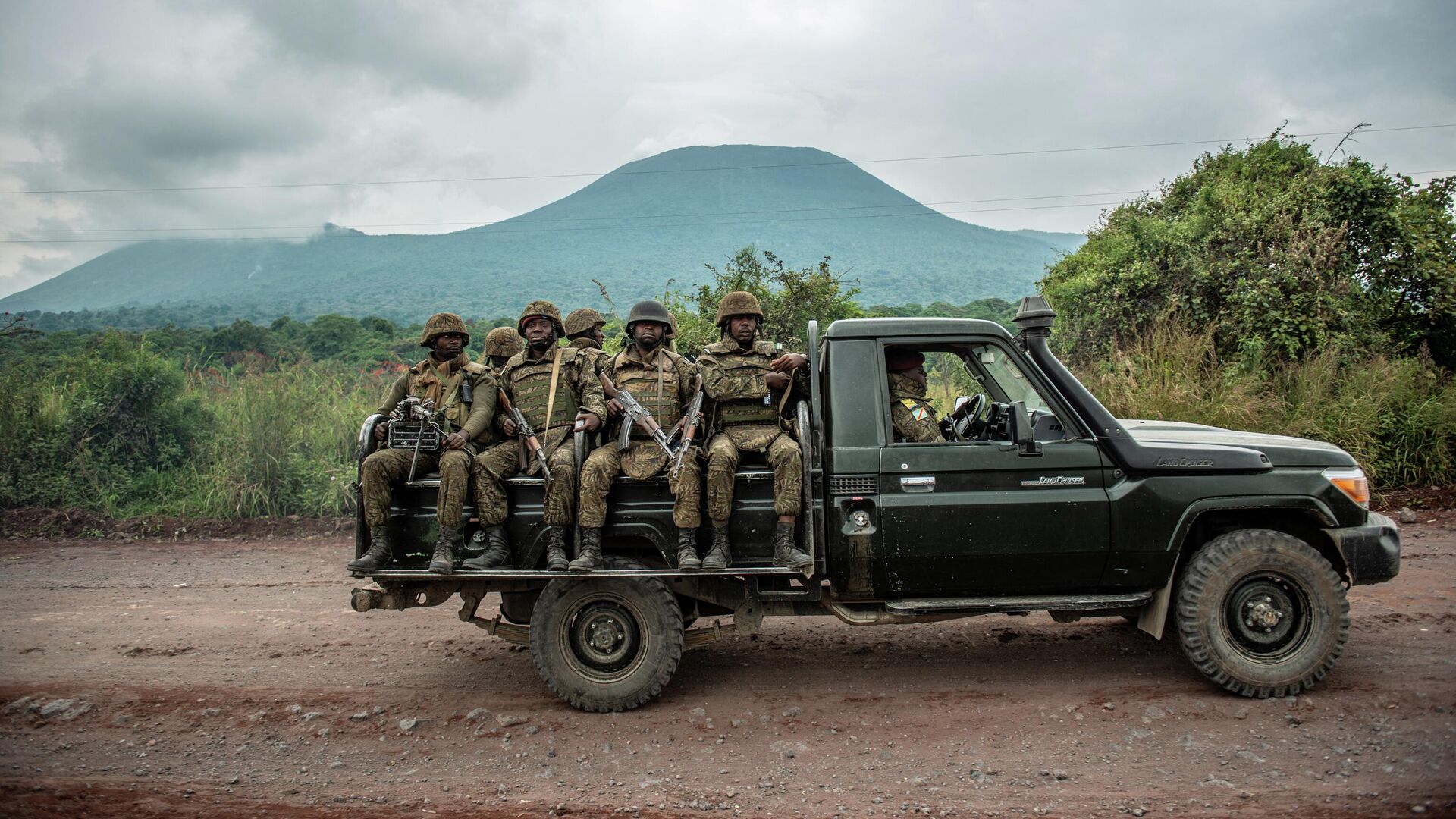‘We Are Congolese, Not Rwandans’; M23 Rebels Say ‘Ceasefire’ Doesn’t Cover Them Amid New Fighting
18:59 GMT 07.07.2022 (Updated: 11:10 GMT 24.11.2022)
Subscribe
A day after a tentative path to normalized relations between the Democratic Republic of the Congo and Rwanda was reached in Luanda, new violence has broken out between the M23 rebel group, which Kinshasa says is controlled by Kigali, and Congolese forces.
Fighting was reported in the town of Kanyabusoro in Rutshuru Territory on Thursday between M23 and DR Congo armed forces (FARDC), according to Agence France-Presse. The city that sits on the border with Rwanda and was seized by M23 last week
A day prior, a “ceasefire” had been announced by Angolan President Joao Lourenco after he invited his Congolese and Rwandan counterparts to Luanda for peace talks. The previous six weeks have seen both nations threaten war and accuse each other of sponsoring proxy forces in Congo’s North Kivu Province.
"We are Congolese, not Rwandans. If there is a ceasefire, it can only be between us and the Congolese government," Willy Ngoma, spokesman for the M23, told AFP on Thursday. He denied the M23 was responsible for the firefight, claiming FARDC had fired on them first.
Congolese President Felix Tshisekedi has accused Rwandan President Paul Kagame, a Tutsi, of sponsoring the predominantly Tutsi M23 group - accusations somewhat supported by a United Nations report but which Kagame’s government has long denied.
The Wednesday agreement overseen by Lourenco established a new “roadmap” to stabilizing Congo-Rwanda relations as well as the North Kivu area, including reviving a long-dormant Congo-Rwanda commission in Luanda, which had been created in the early 21st century to end the fighting of the previous war.
According to the text of the roadmap printed by the Rwanda New Times on Thursday, the deal requires the M23 to cease hostilities and withdraw immediately “from occupied positions.” It also requires both governments to “defeat” the Democratic Forces for the Liberation of Rwanda (FDLR) and its many splinter groups “which are at the origin of tensions between Rwanda and DRC and play a major role in the insecurity of the DRC.”
The FDLR militia is a Hutu Power group in North Kivu descended from those responsible for the 1994 genocide of Rwandan Tutsis and Twa, and Kigali has accused Kinshasa of cooperating with it.The Project on Violent Conflict, a US Department of Homeland Security-funded project, has substantiated some of those allegations, writing that “the relationship between the FARDC and the FDLR oscillates between open conflict and covert cooperation.”
"This roadmap does not commit the M23," Ngoma told AFP in Goma, a city on the border with Rwanda. "We are Congolese, we have nothing to do with Rwanda. We are asked to leave here, but to go where? It is impossible.”
The M23 also originated in the Congo Wars, but demobilized in 2013 following a deal with Kinshasa. However, the group once again took up arms late last year, claiming the government had not kept its end of the deal.
Speaking to the state-owned France24 on Monday, two days before the Luanda deal was reached, Ben Shepherd, a leading specialist on DR Congo and the Great Lakes Region from the London-based Chatham House, said it was unlikely the present situation would actually result in open warfare between Kinshasa and Kigali.
“But the stakes are high. Beyond the tragic consequences for the people of eastern DR Congo, which should never be underestimated, there are real possibilities for inadvertent escalation. The last round of violence between the M23 and DR Congo was ended by a SADC [Southern African Development Community]-led intervention; this time round, the EAC [East African Community] is proposing an intervention force, despite Rwanda itself being an EAC member state, and southern Africa’s heavyweights, notably Angola and South Africa, still having significant stakes in the game,” he said.
“It is imperative that DR Congo does not become once again a battleground for competing geo-political aspirations, but this will take careful diplomacy,” he added.



